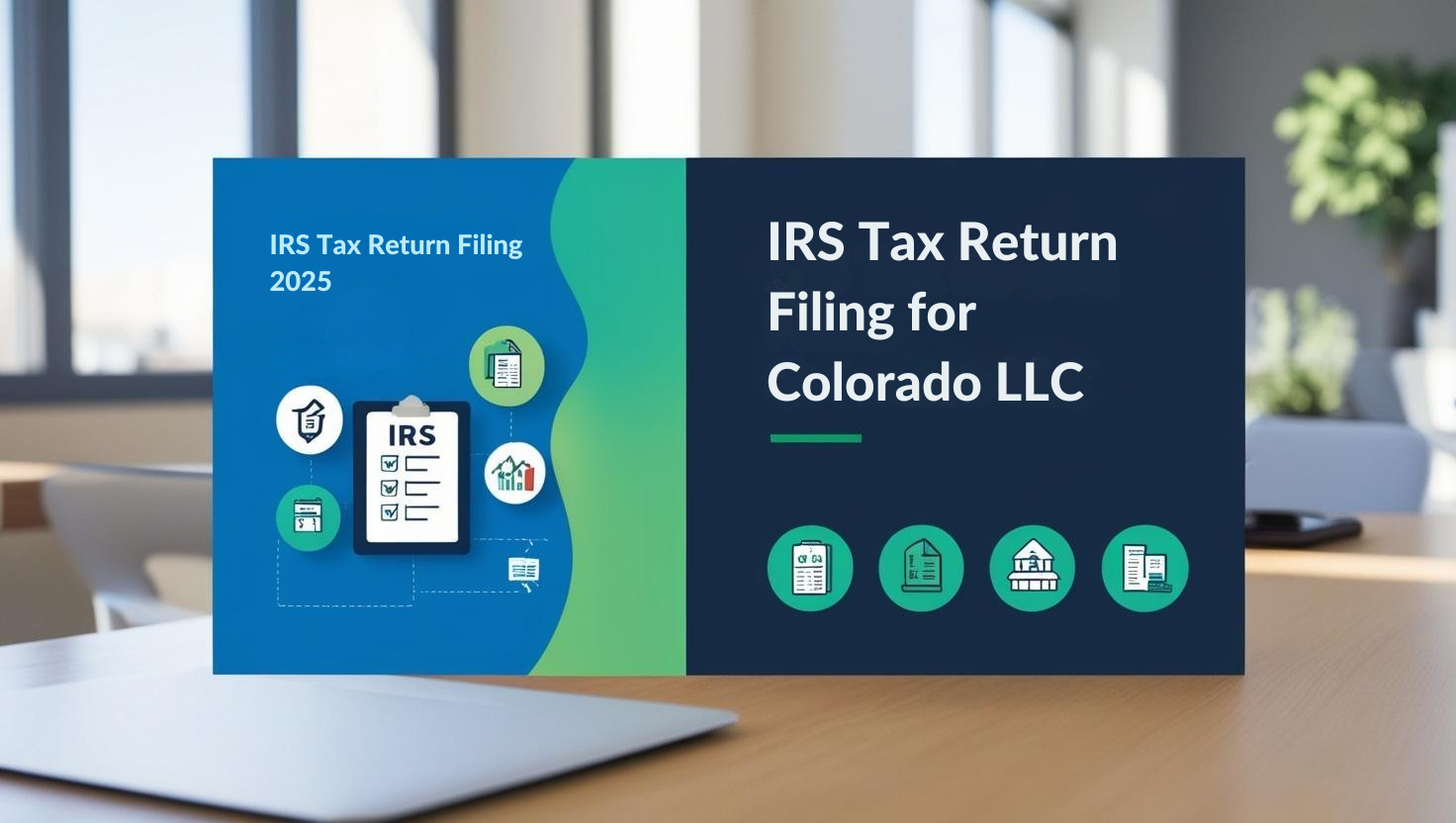Simply creating a Limited Liability Company (LLC) and registering it with the state does not guarantee that the business will continue to be in good standing. LLCs have specific annual compliance requirements that help them maintain their legal status.
These include obligations such as the submission of an annual report, annual fees, and other obligations that foster good practice and keep the company from incurring legal consequences.
This article outlines the obligations that most LLCs have each year and gives tips on how to handle these obligations in a responsible and time-efficient manner.
If you are a practical business owner or a beginner, these matters are important for every business as they are key determinants of staying in business for a long time.
Why Compliance Matters for Your LLC
Compliance principles and practices have great significance in the running of an LLC as they ensure that your business is legally and adequately functioning within the guidelines of federal and state laws.
If laxity is shown on the part of the management of the business entity, the management may suffer various penalties, fines, or even revocation of the LLC status. Additionally, remaining compliant protects your limited liability status which allows personal funding sources to be within their net worth ceilings and immune from business debts.
Moreover, by honoring the necessary filings, reports, and fees, your business appeal is increased to investors, clients, and partners. All in all, compliance not only safeguards your business but also creates an anchor for the development of the business and its sustainability in the foreseeable years.
7 Annual Compliance Requirements for an LLC
LLCs are not just about the daily management of a business but also involve work and activities that are legal or regulatory. These obligations are to assist the LLC in remaining within the law and in good standing with state authorities and the IRS. The below summary presents specific paragraphs for compliance that LLC entities must follow every year:
1. Annual Report Filing

What It Is: All 50 states require LLCs either to submit annual reports (sometimes called “annual statements”) confirming LLC information or else provide relevant details such as the main address, registered agent, business activities, and the name and address of its members or managers. The purpose of annual reports is both to update the information regarding the LLC’s activities and to control the activities of those entities by state agencies.
What It’s Important: The submission of this report makes it possible to address, as far as possible, the informational needs of the state regarding that specific entity. If such a report is not submitted within the stated time limits, the LLC can expect to receive a late fee or a fine or the loss of good standing which can eventually lead to the dissolution of the said LLC or a prohibition of the operation of the seller’s business.
Key Considerations: This depends on the state, as the filing fee and required information differ between the various states. Some states provide the option of filing forms online, which is usually less tedious and quicker. It is advisable to note down the date by which the forms must be submitted so that fines and other penalties are avoided. Not to mention, if an annual report is not made, the chances are that the business will be removed from the records of the state.
2. Franchise Taxes and State Fees
What It Is: Some states impose a yearly franchise tax on LLCs, which can be thought of as a fee to LLC owners for the right to trade in that jurisdiction. The structure and computation of such franchise taxes tend to be diverse, as some states have a flat fee whilst others have computed their tax to facets such as revenue earned, number of members, or the assets of the business. In some situations, it might be that the tax is paid in addition to other fees that a state might charge to keep the LLC in good standing.
Why It’s Important: Franchise taxes also assist in increasing the revenue of the state, and also form a critical aspect in the form of duties that an LLC has to keep fulfilling to not be deregistered. These taxes are imposed to ensure that the business is legally registered and allowed to operate within the state.
Key Considerations: Different taxation is applied by each state in regards to the franchise tax and even if the LLC incurs losses, particular states may have a flat rate minimum tax they impose. For instance, California imposes a franchise tax that is based on gross receipts, and Delaware imposes a flat annual franchise tax fee. Court systems or state governments of some states such as Nevada and Wyoming do not charge a franchise tax otherwise half the states of the USA have states that charge a “franchise tax”, so it is important to know the tax structure of the state in question.
3. Operating Agreement Updates
What It Is: Even though no single state of the USA mandates an LLC to submit or file an operating agreement or a review of the operating agreement, it remains a best practice to periodically review and improve the operating agreement of the LLC once every year. The operating agreement is considered to be perhaps the most important document, along with the articles of organization, which establishes the internal structure of the LLC, its activities, and the obligations of its members. It includes issues of profit-sharing, decision-making, transfer of shares, and management of the company.
Why It Is Important: This ensures that the internal workings of the LLC and its management are up-to-date and current, as is the structure of the LLC. It is often the case when the company is changing by adding new members, changing the percentage of ownership, etc., and when there are changes to the management. Along with this, a properly managed operating agreement lowers the chances of an internal feud, as well as allows for an effective resolution if there is a legal or financial problem.
Key Considerations: Should any fundamental events take place within the LLC, for example, the admission of new members to the LLC, the business being renewed, or the management structure being altered, then it is important to revise the operating agreement to reflect additional changes. In addition, changes in laws and regulations stemming from policy changes can be addressed through a regular review of the agreement.
4. Renewal of Business Licenses and Permits
What It Is: An LLC is also mandated to acquire and keep acquiring business licenses and permits considering the business type which is within the boundaries of its practice. Such licenses are divided into federal, state, and local; and may also be health permits, professional licenses, construction permits or the ones specifically issued for certain fields of business such as liquor, food services, or transportation. Some of these licenses must be renewed on an annual basis.
Why It’s Important: Failure to obtain the right business licenses and permits can lead to getting fined, the business being shuttered, even permanently. These licenses and permits prove that the business is within the applicable safety, insurance, regulatory, and legal channels. They also help customers and clients to identify if the business is real and registered for business.
Key Considerations: Certain requirements for business licensing are determined by the industry as well as the geographic region. It is very vital for LLCs to maintain a calendar of all occupational licenses and permits with issuance or expiration dates, timely send applications for renewals, and initiate changes if and when necessary an applicable business operations activity occurs like expanding the area of services or putting up a new outlet.
5. Tax Filing with the IRS
What It Is: The LLCs are compulsory in filing annual federal tax returns with the IRS. The manner of tax filing, however, depends upon the Street’s classification of the LLC:
- Single member LLC: This entity is disregarded for tax purposes and as such, he files taxes under his name on the returns of the owner (Form 1040, Schedule C).
- Multiple member LLC: This is where an LLC has two or more members. This is taxed in a partnership-based structure where then 1065 a form of information return has to be filled and schedule K1s given to every member.
- LLC taxed as an S-equal corporation: Form 1120S should be filed by S and Shareholders schedule K 1 are issued to the shareholders.
Why It Is Important: Filing taxes accurately and on time is crucial to avoid paying any penalties, or interest or getting an audit done by the Internal Revenue Service. LLCs are responsible for reporting all income figures, borrowings, and available tax credits as well as paying self-employment taxes or income taxes if necessary.
Key Considerations: Owners of LLCs are required to maintain business records and document transactions on a day-to-day level so that at the end of the year, they can fill their tax returns accurately. They may be required to make tax payments in April as estimates if the earnings of the LLC are high. Seek the help of a tax professional to ensure adherence to tax laws and compliance to avoid high tax exposure.
6. Registered Agent’s Fees and Updates
What It Is: Each LLC must appoint a registered agent in the state of formation. The registered agent is the person obliged to receive legal documents such as service of process documents, tax notices, and communication from the state. The agent needs to be present within business hours to have the documents provided to him.
Why It’s Important: The registered agent performs a crucial role in facilitating the LLC’s access to legal and tax documents by the LLC timely. Legal notices and timelines are structures that should be complied with; otherwise, the LLC could be harmed through penalties or lawsuits. Some LLCs elect to use a registered agent service, which incurs an annual renewal fee.
Key Considerations: Even though the registered agent must be a member of the LLC, members do not need to worry as long as their contact details such as mobile numbers and email addresses are still active. If the business entity’s address changes or the business activities change, the registered agent’s particulars must be updated at the state level. Finally, it is also very important to maintain an annual renewal of the registered agent service to avoid any interruption in legal and official notifications.
7. Compliance with State Requirements
What It Is: To remain in good standing, an LLC needs to comply with all the applicable legal requirements, including submitting the necessary filings, paying appropriate fees and taxes, and having a registered agent in place. The good standing of an LLC enables it to legally do business, enter contracts, and shield its members from personal exposure.
Why It’s Important: Non-compliance with good standing may end up with dire repercussions such as curtailment of the legal power of the LLC, payment of penalties, or in some cases deregistration. In such jurisdictions, for example, an LLC that loses good standing might have difficulty getting debt, opening business accounts, or entering partnerships or client contracts.
Key Considerations: LLCs must be self–regulatory in respect of the compliance with the rules of good standing in their respective states. It includes the submission of annual reports, making tax payments, and applying for the necessary renewal of all licenses. In the event of an LLC’s failure to maintain its status for any reason, such problems ought to be addressed to appropriate experts before complications arise.
Easyfiling for Your LLC Annual Compliance
Your LLC can easily stay compliant with its Annual requirements by filing yearly reports, franchise tax payments, and assisted tax returns with EasyFiling. They also give registered agent services, provide reminders for business license renewals, and assist in amending your operating agreement.
Moreover, EasyFiling aids in tracking financial transactions, insurance evaluations, and conducting the annual meeting. In providing these services, EasyFiling guarantees that your LLC maintains good standing, allowing you to concentrate on expanding the scope of your business.
Book a free consultation for LLC Annual Compliance requirements and get a coupon code BEASY10 to get a 10% discount on incorporation.
Frequently Asked Questions (FAQs)
Do all LLCs need to file annual reports?
Filing an annual report is a common requirement among most states but requirements are state-specific. Delaware and Nevada for instance provide more requirements for annual filings than other states.
What is the annual report fee structure for an LLC?
The fee structure varies depending on which state an LLC is based. The average cost can range from $20 up to $500 or more depending on the state and revenue/size of the LLC.
What are the tax obligations of an LLC?
Every LLC must remember to submit its annual return to the IRS. The owners of single-member LLCs report on Schedule C when using 1040, while multi-member LLCs report as Partnerships by filling out the 1065 form. However, LLCs that have opted for corporate taxation must file Form 1120. Other than that, LLCs are subject to state and local tax filing rules.
What is an Operating Agreement and when is it due for renewal?
An Operating Agreement contains vital information about the internal workings of the LLC, such as the management of day-to-day affairs. It is, nonetheless, not obligatory to make any revisions on an annual basis. It would be appropriate to make any amendments if there is a substantial modification in the owners, the management of the LLC, or its organization.
What is the charge for late submission of the annual return form?
Most states do consider late submission of the annual return form as a crime that incurs heavy penalties, sometimes leading to delay fees or interference with the LLC’s existence altogether. Penalties may fall anywhere from several hundred dollars to 100% loss of LLC’s legal credentials.
File Your LLC Today
25$ off with a coupon
Lock in EasyFiling's transparent rates and get lifetime compliance support at no extra cost.
Get Started Now








